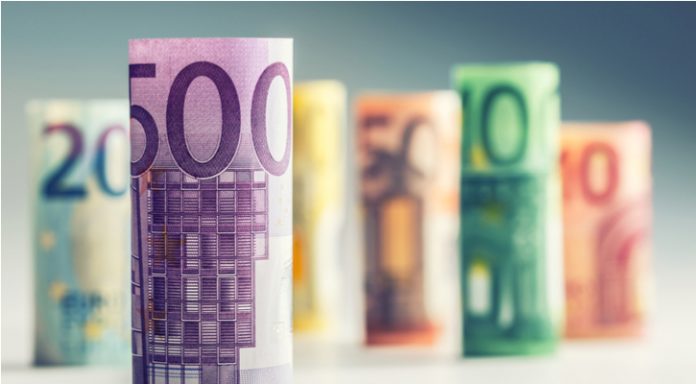After falling sharply in early trade to a two-week low, the pound euro exchange rate finished the session on Wednesday at €1.1136. This is roughly the same level that that it started trading on Wednesday.
| What do these figures mean? |
|---|
|
When measuring the value of a pair of currencies, one set equals 1 unit and the other shows the current equivalent. As the market moves, the amount will vary from minute to minute. For example, it could be written: 1 GBP = 1.13990 EUR Here, £1 is equivalent to approximately €1.14. This specifically measures the pound’s worth against the euro. If the euro amount increases in this pairing, it’s positive for the pound. Or, if you were looking at it the other way around: 1 EUR = 0.87271 GBP In this example, €1 is equivalent to approximately £0.87. This measures the euro’s worth versus the British pound. If the sterling number gets larger, it’s good news for the euro. |
With no fresh economic data to drive the pound, market participants remain glued to Brexit developments. As ministers continue trying to thrash out a deal in Brussels, pound traders are evaluating the headlines as they are released. There have been mixed messages over regarding whether a deal will actually be struck by the self-imposed October deadline.
Whilst UK Brexit Secretary Dominic Raab seems convinced that a deal will be in place by mid-October, EU players seems to think that November is a more realistic time frame.
Either way, market participants are very cautiously optimistic that a deal could now be a possibility, and this helped pick the pound up off early lows. However, there is still clearly a long way to go and this is keeping investors nervous and a cap on gains.
| Why is a “soft” Brexit better for sterling than a “hard” Brexit? |
|---|
| A soft Brexit implies anything less than UK’s complete withdrawal from the EU. For example, it could mean the UK retains some form of membership to the European Union single market in exchange for some free movement of people, i.e. immigration. This is considered more positive than a “hard” Brexit, which is a full severance from the EU. The reason “soft” is considered more pound-friendly is because the economic impact would be lower. If there is less negative impact on the economy, foreign investors will continue to invest in the UK. As investment requires local currency, this increased demand for the pound then boosts its value. |
Today investors will look towards sales data from the Confederation of British industries. Analysts are expecting sales to have declined from July, which was a particularly good month thanks to the hot weather and World Cup knockout stages. Disappointing numbers could send the pound lower.
| Why does poor economic data drag on a country’s currency? |
|---|
| Slowing economic indicators point to a slowing economy. Weak economies have weaker currencies because institutions look to reduce investments in countries where growth prospects are low and then transfer money to countries with higher growth prospects. These institutions sell out of their investment and the local currency, thus increasing supply of the currency and pushing down the money’s worth. So, when a country or region has poor economic news, the value of the currency tends to fall. |
ECB Minutes In Focus
The euro was broadly balanced in the previous session. On the one hand it was benefitting from the weaker dollar, as the euro often traders inversely to the dollar. However, on the other hand, investors are getting increasingly concerned over the upcoming Italian budget.
Italy has once again turned into the weakest link in the eurozone as the recently elected populist government vows to spend more, despite already having the second largest debt pile in the eurozone. The government has vowed to raise pensions and household’s available income and investors are fearing that this could send Italy into another debt crisis.
Today investors will switch their attention back towards the European Central Bank, with the release of minutes from the ECB monetary policy meeting meeting. Investors will be watching for clarification over when “end of the summer 2019” actually means for the next rate hike. A dovish interpretation from Draghi may not be unanimously reflected within the group.
This publication is provided for general information purposes only and is not intended to cover every aspect of the topics with which it deals. It is not intended to amount to advice on which you should rely. You must obtain professional or specialist advice before taking, or refraining from, any action on the basis of the content in this publication. The information in this publication does not constitute legal, tax or other professional advice from TransferWise Inc., Currency Live or its affiliates. Prior results do not guarantee a similar outcome. We make no representations, warranties or guarantees, whether express or implied, that the content in the publication is accurate, complete or up to date. Consult our risk warning page for more details.
This article was initially published on TransferWise.com from the same author. The content at Currency Live is the sole opinion of the authors and in no way reflects the views of TransferWise Inc.





